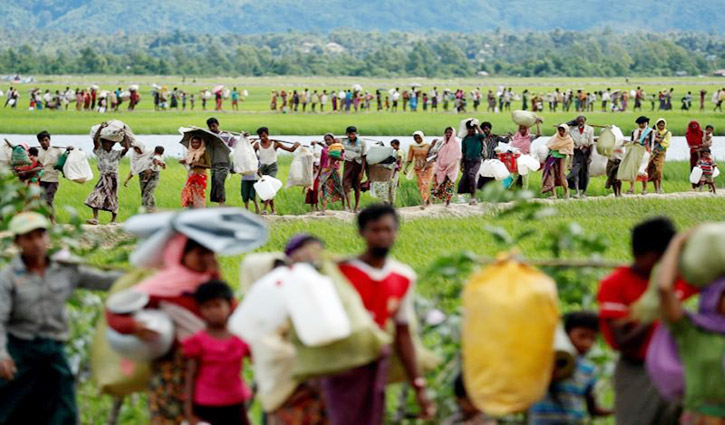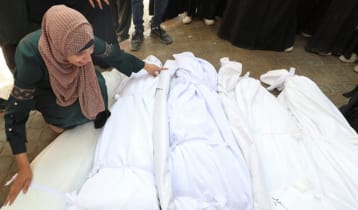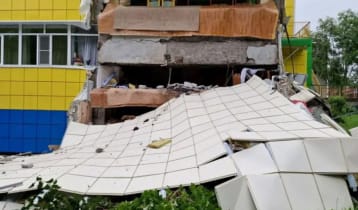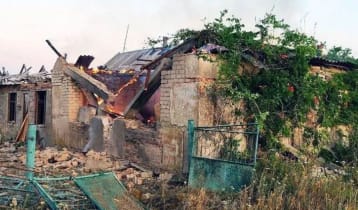Returning Rohingya may lose land, crops under Myanmar plans
2 || risingbd.com

International Desk: Rohingya Muslims who return to Myanmar after fleeing to Bangladesh are unlikely to be able to reclaim their land, and may find their crops have been harvested and sold by the government, according to officials and plans seen by Reuters.
Nearly 600,000 Rohingya have crossed the border since Aug. 25, when coordinated Rohingya insurgent attacks on security posts sparked a ferocious counteroffensive by the Myanmar army.
The United Nations says killings, arson and rape carried out by troops and ethnic Rakhine Buddhist mobs since late August amount to a campaign of ethnic cleansing against the Rohingya.
Civilian leader Aung San Suu Kyi, who has no control over the military, has pledged that anyone sheltering in Bangladesh who can prove they were Myanmar residents can return.
Reuters has interviewed six Myanmar officials involved with repatriation and resettlement plans. While the plans are not yet finalised, their comments reflect the government’s thinking on how Suu Kyi’s repatriation pledge will be implemented.
Jamil Ahmed, who spoke to Reuters at a refugee camp in Bangladesh, is one of many Rohingya who hope to go back.
Describing how he fled his home in northern Rakhine state in late August, Ahmed said one of the few things he grabbed was a stack of papers - land contracts and receipts - that might prove ownership of the fields and crops he was leaving behind.
“I didn’t carry any ornaments or jewels,” said the 35-year-old. “I’ve only got these documents. In Myanmar, you need to present documents to prove everything.”
The stack of papers, browning and torn at the edges, may not be enough, however, to regain the land in Kyauk Pan Du village, where he grew potatoes, chilli plants, almonds and rice.
“It depends on them. There is no land ownership for those who don’t have citizenship,” said Kyaw Lwin, agriculture minister in Rakhine state, when asked in an interview whether refugees who returned to Myanmar could reclaim land and crops.
Despite his land holdings, Myanmar does not recognize Ahmed as a citizen. Nearly all the more than 1 million Rohingya who lived in Myanmar before the recent exodus are stateless, despite many tracing their families in the country for generations.
Officials have made plans to harvest, and possibly sell, thousands of acres of crops left behind by the fleeing Rohingya, according to state government documents reviewed by Reuters.
Myanmar also intends to settle most refugees who return to Rakhine state in new “model villages”, rather than on the land they previously occupied, an approach criticized in the past by the United Nations as effectively creating permanent camps.
The government has not asked for help from any international agencies, who are calling for any repatriation to be voluntary and to the refugees’ place of origin.
The exodus of 589,000 Rohingya - and about 30,000 non-Muslims - from the conflict zone in northern Rakhine has left some 71,500 acres of planted rice paddy abandoned and in need of harvesting by January, according to plans drawn up by state officials.
Tables in the documents, reviewed by Reuters, divide the land into paddy sown by “national races” - meaning Myanmar citizens - or “Bengalis,” a term widely used in Myanmar to refer to the Rohingya, but which they reject as implying they are illegal migrants from Bangladesh.
Source: Reuters
risingbd/Dhaka/October 22, 2017/A K Azad
risingbd.com



















